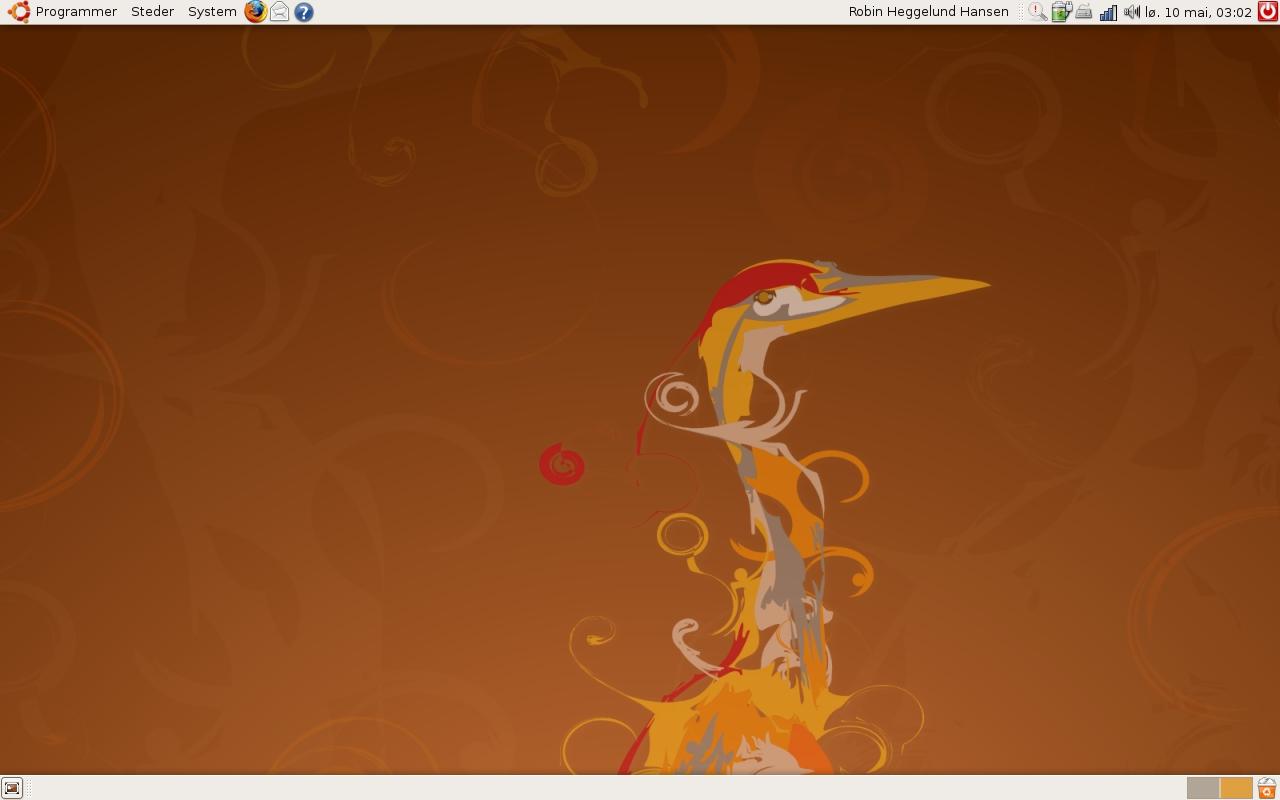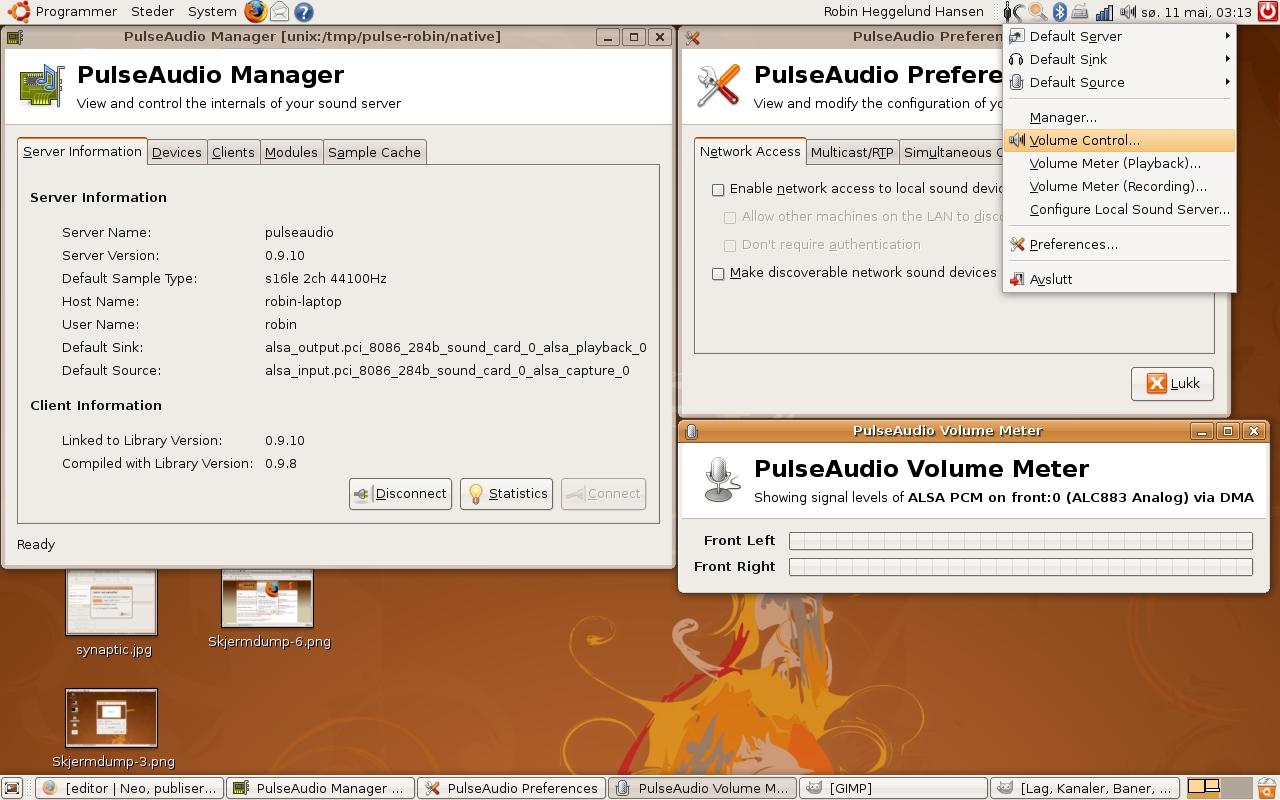Scott James Remnant (English)

Introduction
Previously, we've interviewed the lead-developers of Arch and Gobo Linux. Two distributions for the more advanced users out there. This time, we're going in the complete opposite direction to understand more about a user friendly Linux-distribution: Ubuntu.
Chances are you've already heard of Ubuntu, one of the most popular Linux-distributions out there, especially amongst the people new to Linux.
We've already reviewed the latest edition of this Linux-distribution – Ubuntu 8.04 LTS (Norwegian only) – and given it an overall good review, but if you want to know more about it, this is the place to look.
This article is also available in Norwegian.
Introducing Ubuntu Linux
Who are you and what do you do?
My name's Scott James Remnant and I'm the leader of the Ubuntu Desktop Team, the development team that concentrates on the desktop edition of Ubuntu which is the version most people are familiar with.
I was one of the original groups of developers hired by Mark, based on my work with the Debian project; at the time, I was maintaining dpkg, GNU libtool and pkg-config.
My role has varied over the four years, from some of the early decisions about which applications to include to my current role of leading the desktop team.
Within the community, I also sit as one of the members of the Ubuntu Technical Board which arbitrates technical decisions and disputes within the community and also reviews all applications to become Ubuntu developers.
Most already know, but for those who don't: What is Ubuntu?
Ubuntu is a Linux distribution born from the idea of taking the Debian distribution and making regular, time-based, releases with a desktop slant. By using collaboration tools such as distributed revision control, we would be able to maintain our own bug fixes and work to provide better integration between the selected applications.
Since then, Ubuntu has grown into a full distribution in its own right, though we still very much maintain our Debian roots. Each Ubuntu release cycle still has a period where we update to the latest packages from Debian unstable to develop from.
The goal is simple: to bring Linux to the masses by having a distribution where everything just works, is easy and delightful to use, and regularly updated.

Mark Shuttleworth is the public face of Ubuntu and Canonical. What is his actual role in the Ubuntu development?
Within the community structure of Ubuntu, Mark's role is that of the Self-Appointed Benevolent Dictator For Life (SABDFL). He leads the Community Council and Technical Board, and if there ever was to be a dispute between the two groups, would arbitrate that.
He takes an active interest in the development of the distribution, and each release usually has features he personally has requested and championed.
Ubuntu is regarded by many as THE most user-friendly Linux-distribution. Do you feel the pressure of living up to these expectations, is there a sense of competition with Linux-distributions like Fedora or openSUSE?
Our biggest competitor is our own previous releases. Each release, we have to improve on the last; each release has to be smaller, faster, more attractive and with more features. When we turn out our best release yet, we know that we have to do even better for the one after.
With the other distributions, there is more of a sense of collaboration. Since all of our software is Open Source, we all share the same code and features.
Why did you choose debian unstable as the basis for this Linux-distribution, compared to creating the Linux-distribution from scratch?
Debian already provided a stable, well-maintained base of packages consisting of the majority of the available open software. It's the work of around a thousand individual developers, and thus the ideal base to build from when your team is somewhat smaller.
How compatible would you say Ubuntu is with Debian?
Debian and Ubuntu are different distributions, so you cannot simply mix packages from the two and expect them to work flawlessly together. However software built for a particular version of Debian will normally work without modification on an equivalent version of Ubuntu.
Certainly at a source-code level, all Linux distributions are compatible. At a binary level, we conform to the LSB.
Development
How can the user community get involved with the Ubuntu development?
Anybody can help out in the way that best suits their talents or interests. Help is always needed in everything from translation, bug triage, testing, bug fixing to feature development.
The best way to begin is to get in touch with one of the many teams that match what you want to do.
Considering your user base, how much work is done by the community and how much is done by the active developers?
Many of the most active developers are those who participate through the community and are not employed by Canonical Ltd. Ubuntu could simply not exist without them.
How many developers are working on Ubuntu at this moment? Is it paid work?
The community of people working on Ubuntu consists of more than just the developers, but also those who contribute to package maintenance, those who aid in bug triage and fixing, those who perform translations of software, etc.
The numbers are certainly in the hundreds. Many are paid, either by Canonical Ltd or by other companies. Others have gained employment simply by their work.
I've personally reviewed both Ubuntu 7.10 and 8.04 LTS and there is one thing bugging me. Some translations are missing or incomplete, especially in new tools and applications. Considering your user base I sincerely doubt you lack active translators. So what's up with the missing translations?
While our user base is large enough that missing or wrong translations are noticed, relatively few step up to help out. All you need do is select "Translate this Application" from the Help menu of the problem apps, and start filling in translations!
Any interesting developments targeted for future releases that you are excited about, or just want to share with our readers?
I'm particularly looking forwards to seeing the fruit of the user experience work being done for future releases that will provide a different look for the Ubuntu desktop.
Redhat, Novell, IBM and several other companies have paid developers working on the Linux-kernel and other Linux-related projects. Does Canonical do something like this?
We're a rather smaller company than those you mention; they have teams of people working on single Open Source projects that are larger than our entire company!
This obviously means if you count and compare the simple number of commits, we appear to come out badly in comparison.
Canonical has paid for work on a number of upstream projects, and we have developers who have provided significant contributions to them. As we grow as a company, that number will increase.
Although we're a small company, we have produced a distribution that's being used by millions of people around the world, many of which haven't been introduced to Linux yet. The additional testing and feedback for improvements (as well as bugs) is rarely recognized as a contribution, but ought to be.
Scott, Ubuntu and the future of Linux
Do you use Ubuntu yourself on a daily basis or as your only operative system?
Yes, Ubuntu is my primary operating system at home.
Is there a feature you particularly like which is unique to Ubuntu?
Being Open Source, it's particularly difficult to select a feature that is unique to Ubuntu, many of those that we develop can also be found in Debian and Fedora, amongst others.
If I were to select a feature we developed, it would be the ease at which you can install software and keep it up to date from the desktop. The same software is now found in Debian, which has greatly benefited their distribution, just as the work they do benefits us.
In your opinion. What is Ubuntu's greatest weakness?
My personal opinion is that we need to make a more compelling developer platform to attract people to develop for Ubuntu from outside the existing Open Source community.
To compare with a competitor for a moment: in Ubuntu, if you want to do Audio work, you need to know about ALSA, Gstreamer, Gnonlin and PulseAudio – not just their APIs, but also the subtle ways in which they overlap and provide the same functionality in different ways.
And that's just the stack shipped in Ubuntu by default, for other distributions (including Kubuntu) you may need to know about other technologies like OSS, JACK, aRts, Phonon, ESD, etc.
If you develop for Apple, all you need is Core Audio.

What kind of people would you recommend Ubuntu to, and how would you recommend they go about learning the system?
I would recommend Ubuntu for everyone!
The most recent version of Ubuntu includes a Windows installer that allows you to install to a file on your hard disk without repartitioning or reformatting.
This or the Live CD allows a new user to experiment with Ubuntu without worrying about being unable to "go back".
What would be your argument for making people switch from Mac and/or Windows to Ubuntu Linux?
You switch to an operating system designed with users in mind, and which is continually improved; while still running on hardware that would long ago have been consigned to the trash.
What are your thoughts on Linux and the future? Do you ever think Linux will take over for Windows as THE operating system, or do you believe it will eventually even itself out?
I think that the best outcome would be a world where there is no single dominant operating system, and instead users can make a choice between them based on appropriateness for their task.
Since there would be a number of different competitors, these competitions would force everybody to remain in the game by continually improving their software.
That's it. Is there anything you wish to say that hasn't come out during the course of this interview?
No, nothing really.
We thank Scott James Remnant for his time and patience answering our questions for this interview, and wish him the best of luck on future endeavors.

